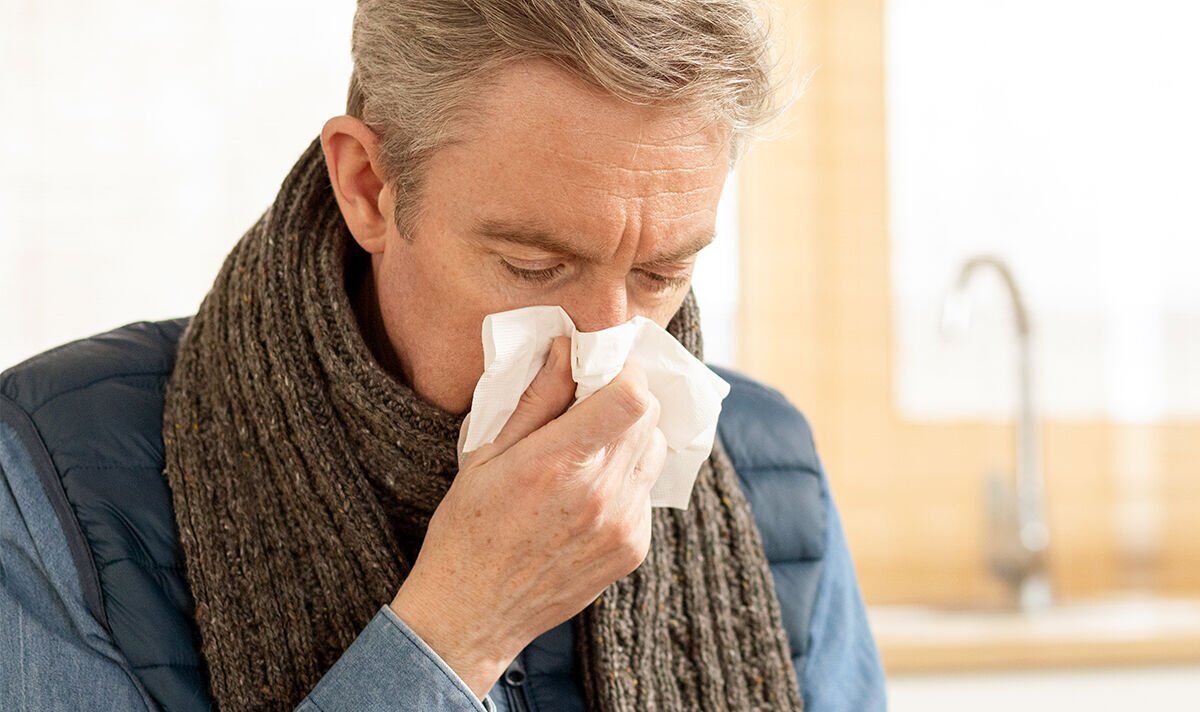Omicron: GP explains ‘overwhelming’ science behind vaccines
We use your sign-up to provide content in ways you’ve consented to and to improve our understanding of you. This may include adverts from us and 3rd parties based on our understanding. You can unsubscribe at any time. More info
As the colder months roll around every year Britons prepare to face a slew of illnesses. Colds, flu and now Covid, become more prevalent in the winter making them difficult to avoid. While there are many traditional remedies available, as well as basic preventative measures like thorough hand washing and wearing a mask, scientists may have discovered one more method to protect yourself from certain viruses.
A team from ScotBio, based in West Lothian, has been investigating how to turn waste molecules from the algae spirulina into a potential treatment for colds, COVID-19, and other viruses.
Specifically they are looking at how to harness the antiviral properties of the molecules – saying that they’re finding “promising initial results.”
As part of the research, the biotech company is working in collaboration with the University of Edinburgh, Robert Gordon University, and the Industrial Biotechnology Innovation Centre (IBioIC).
Spirulina is already used as an ingredient in commercial products, such as dietary supplements and food colourants.

It is widely accepted as a rich source of nutrients.
The blue-green algae contains a plant-based protein called phycocyanin, which is reported to have antioxidant, pain-relieving, anti-inflammatory, and even brain-boosting properties.
Scientists from ScotBio say they have identified the most effective antiviral extracts against Covid, common cold viruses, and influenza by separating molecules in spirulina into different chemical groups.
It is hoped the research will aid in the fight against common viruses and future pandemics.
These findings also support earlier studies which noted anti-HIV and anti-HSV (Herpes Simplex Virus) activity in similar compounds.
They show that spirulina molecules have little toxicity for mammals, and could therefore be safely and effectively used against emerging human and animal viral diseases.
In a statement to SWNS, ScotBio development manager Joe Palmer, said: “Working with the project consortium has enabled us to fractionate spirulina into distinct chemical groups and then screen the extracts in a safe environment.
“Through that, we have identified compounds that could be particularly effective against a broad range of viruses from what was previously seen as waste.

“We can now work on recovering and purifying these molecules as high-value ingredients.”
ScotBio works to create natural colourants, plant-based proteins, and nutritional ingredients for the food, cosmetics, textile, and pharmaceutical industries.
To achieve this they derive these products from algae, which they grow in an indoor vessel-based system.
Mr Palmer added: “The next step for us is to better understand the market opportunities for these molecules and to fully resolve the relationship between molecule chemistry and their antiviral mechanisms.

“Our aim is for this project to be a catalyst that will unlock a large and untapped market, helping in the fight against common viruses and future pandemics.”
Common symptoms of COVID-19 include:
- A high temperature or shivering (chills)
- A new, continuous cough
- A loss or change to your sense of smell or taste
- Shortness of breath
- Feeling tired or exhausted
- An aching body
- A headache
- A sore throat
- A blocked or runny nose
- Loss of appetite
- Diarrhoea
- Feeling sick or being sick.
Although there are no longer legal restrictions, the NHS advises staying at home and avoiding contact with others if you think you have Covid.
You can pass the virus on for up to 10 days after you test positive.
Source: Read Full Article
